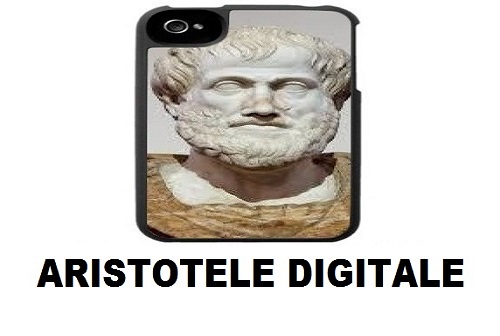The sacred in philosophy
Even the sacred never fails to return, even in philosophy. Even when you think you have put it into the scales, as with ideologically secular imposition, it always finds the way to re-emerge. Most of the time, following its own nature, the sacred does terrible damage.
It must be said – as René Girard taught us – that the sacred is not religion, even if it feeds its power. However, the sacred is the tremendous or, rather, the horrible need to have a sacrificial victim to remove (according to Freud) the violence which is in us and to establish the power of power. Unfortunately, it is well known how deeply dangerous each removal is.
There is no civilization that does not somehow come to terms with the various forms and ways of the sacred.
Now, I have long argued that in the transition from the industrial production mode to the digital mode of production everything has changed. Lately, I tend to emphasize the radicality of change by writing that not only everything has changed, but the Whole has as well. That is, not only the epiphenomena have changed but also the very logic that regulates the relationship between phenomena has changed.
Well! What about the sacred which, as mentioned, never fails to return?
Perhaps is the so-called spirit of time inexorably pushing towards total desacralization, accentuating what some philosophers call secularization? Would we all finally be secular and free from all constraints except from the one we ourselves decide as a social pact so that we do not braid each other?
I don’t think so, since the sacred never fails to return.
There is always a danger that the sacred will re-emerge in all its capacity for violence. In the last century, it happened several times by using horrendous political masks. However, there is also the possibility of depowering it. After all, we can always cling with hope to free will. How? Douglas Hofstadter points this out to us in his formidable Gödel, Escher, Bach: an eternal brilliant garland, trying to overcome every possible dualism, even the identity/difference one or, in the plots of digital, continuous/discreet. How? With Zen enlightenment. I reassure the reader: I am not looking for justifications by slipping dangerously on oriental mysticisms. I am simply noticing, following Hofstadter, that in the Gödel’s theorem, the coherence of a system is such precisely because it cannot be proved. This theorem is the foundation of the possibility that digital logic is not only mathematical (i.e. based on continuous) but also argumentative (i.e. activated in the discrete). That being said, analogies with Zen are evident. Note: I do not write at all using the Zen philosophy, since Zen, like digital, is not a philosophy, but a way of being.
The fundamental feature of Zen is that it is not possible to define Zen (does it seem Gödel or not?) and that words and truth are incompatible. Perhaps this also applies to digital. And, perhaps, de-empowering the tremendous of the sacred can offer a spirituality that needs no justification.








